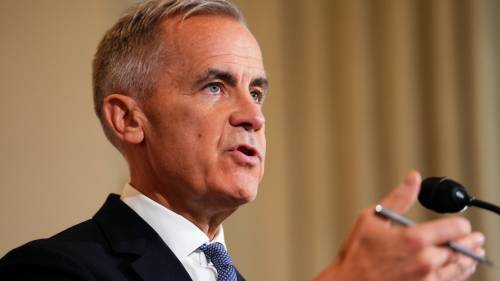The steep escalation in U.S. H-1B visa fees has inadvertently handed Canada a golden opportunity to attract top-tier global tech talent. As the Biden administration implements a tenfold increase in visa costs—from $10,000 to a staggering $100,000—industry experts predict a significant redirection of skilled workers toward Canadian shores in what could become a transformative moment for the nation’s technology sector.
“This represents a pivotal juncture for Canadian innovation,” says Mark Carney, former Bank of Canada governor, in a recent address to technology stakeholders in Toronto. “With American doors becoming increasingly expensive to open, Canada’s more accessible immigration pathways are positioned to capture exceptional global talent that might otherwise have headed to Silicon Valley.”
The timing could not be more opportune for Canada’s technology ecosystem. While the U.S. has traditionally dominated in attracting international tech professionals, Canada’s immigration programs have steadily gained recognition for their efficiency and accessibility. The Global Talent Stream, launched in 2017, has already facilitated the entry of thousands of technology workers by processing work permits within just two weeks—a stark contrast to the months-long waiting periods characteristic of the American system.
Current data from Immigration, Refugees and Citizenship Canada reveals a 35% increase in tech-related permanent residency applications since the announcement of the U.S. visa fee hike. Toronto, Vancouver, and Montreal—already established as emerging technology hubs—are expected to be primary beneficiaries of this talent influx.
“Companies in Canada’s innovation corridors are reporting unprecedented interest from senior developers, data scientists, and AI specialists who are now reconsidering their career trajectories,” notes Catherine Virelli, director of talent acquisition at TechNation Canada. “The calculus has fundamentally changed when an employer must consider whether a specific hire warrants a $100,000 visa investment.”
The economic implications for Canada extend far beyond simple employment numbers. Research from the Conference Board of Canada estimates that each highly skilled tech immigrant creates an average of 3.5 additional jobs within the broader economy through entrepreneurial activities and increased demand for services. This multiplier effect could potentially generate thousands of new positions across various sectors.
However, this opportunity comes with significant challenges. Canadian tech salaries, while competitive by global standards, still lag behind their U.S. counterparts by approximately 20-30%. Housing affordability in major innovation centers presents another substantial barrier, with Vancouver and Toronto consistently ranking among North America’s most expensive real estate markets.
“We need to address these structural impediments if we want to fully capitalize on this moment,” warns Jameson Wong, chief economist at the Canadian Technology Council. “The salary differential can be partially offset by our healthcare system and quality of life, but housing remains a critical concern that requires immediate policy attention.”
The federal government has signaled awareness of this opportunity, with Immigration Minister Marc Miller recently announcing plans to streamline pathways for tech workers with specialized skills in artificial intelligence, quantum computing, and cybersecurity—areas deemed crucial for Canada’s future economic competitiveness.
“The global competition for talent is fiercer than ever, and we’re positioning Canada as the premier destination for innovation leaders,” Miller stated during a press conference in Ottawa last week.
As this international landscape of talent mobility continues to evolve, Canadian technology companies are actively reformulating their recruitment strategies. Several major firms have already established dedicated teams focused exclusively on attracting professionals directly impacted by the changing U.S. visa regulations.
Will Canada successfully leverage this unexpected advantage to transform its innovation economy, or will persistent challenges in compensation and affordability ultimately limit the potential gains from America’s policy shift?










